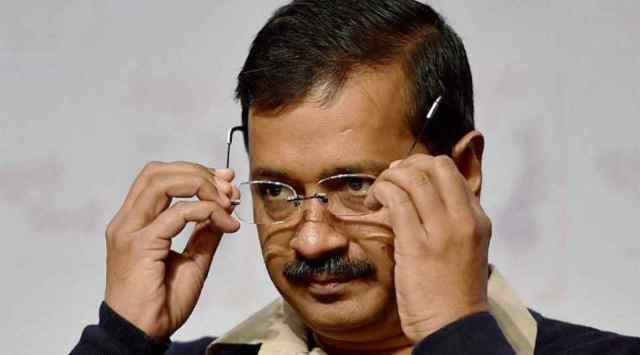Stay updated with the latest - Click here to follow us on Instagram
Delhi govt approves cab aggregator scheme, sends it to LG for further approval
The draft will then be put up for public feedback and comments by the Transport Department, after which it will be given its final shape, they added.
 The CM further explained that by transitioning to electric vehicles and promoting electric bike taxis, the government will be able to reduce pollution levels in Delhi and create new opportunities for employment. (File)
The CM further explained that by transitioning to electric vehicles and promoting electric bike taxis, the government will be able to reduce pollution levels in Delhi and create new opportunities for employment. (File) Chief Minister Arvind Kejriwal approved the much-awaited Delhi Motor Vehicle Aggregator Scheme, 2023 Monday. Under this scheme, bike taxis, which were recently banned from plying in the city, will also make a comeback.
Officials said the draft scheme has now been sent to the Delhi LG for further approval. The draft will then be put up for public feedback and comments by the Transport Department, after which it will be given its final shape, they added.
The main aim of this aggregator scheme is to regulate cab aggregators and delivery service providers in the city. While approving the scheme, Kejriwal said, “This scheme prioritises the safety of passengers and ensures timely grievance redressal and also promotes the use of electric vehicles and reduces pollution levels in the city.”
The CM further explained that by transitioning to electric vehicles and promoting electric bike taxis, the government will be able to reduce pollution levels in Delhi and create new opportunities for employment and economic growth.
The scheme will be applicable to any person or entity that operates, on-boards, or manages a fleet of motor vehicles through digital or electronic means or any other means to ferry passengers or connect a driver offering to deliver or pick up a product, courier, package, or parcel to connect with a seller, e-commerce entity, or consignor.
Besides, under this scheme, the government also aims to ensure passenger safety. It will make it mandatory for aggregators to install a panic button and integration with 112 (Delhi Police) for emergencies.
The scheme also includes a mechanism to ensure timely consumer grievance redressal by service providers, enforcement of vehicle fitness, pollution control, and validity of permits. It also provides for driver remedial training in instances where the driver’s performance is poor.
“The scheme will also mark a historic first for the nation where a state government will be introducing a mandatory transition of commercial vehicles from conventional vehicles to electric vehicles. The scheme provides for phased mandates for fleet operators to transition their fleet from conventional vehicles to electric,” read a statement issued by the CMO.
Currently, bike taxis and delivery service providers are using non electric bikes but under the policy, only e-bikes will be allowed to ply as taxis and also for delivery services.
But to avoid any kind of “knee jerk reaction” to the existing livelihood, the government has also given a certain period for transition.
“It mandates only an incremental percentage of new on-boarded vehicles over a period of four years to avoid any knee-jerk reactions to existing livelihoods. For example, 5 per cent of the new onboarded cars need to be electric in the first six months of the scheme,” the statement added.
The policy further mandates that after four years from its notification, all new commercial two-wheelers and three-wheelers will need to be EVs. Similarly, after five years from its notification, all new commercial four-wheelers need to be EVs. The aggregator and delivery service provider shall also be mandated to switch to an all-electric fleet by April 1, 2030.
The scheme also says that Delhi has never permitted bike taxis to operate in the city and as under the new policy, all bike-taxis and two-wheeler renting services in the city shall only be via electric two-wheelers. These provisions are in-line with the Delhi EV Policy 2020, said officials.
Further, to push adoption of the EVs, the per vehicle licence fee for a conventional vehicle is significantly higher than an electric vehicle. For instance, the licence fee for an electric taxi may be zero but the licence fee of a CNG taxi may be Rs 650. Secondly, all licence fees and penalties under the scheme shall also be credited to the State EV Fund, which in turn supports all EV promotional activity, the officials added.







